Horizontal dry powder mixer as core equipment in the chemical, building materials, food, and feed industries, have prices that vary widely, influenced by numerous factors, including equipment specifications, configuration, materials, and manufacturer service. Our horizontal dry powder mixers offer horizontal, vertical, and mobile models, and are available in carbon steel and stainless steel configurations. We also offer the ability to add inlets and outlets to meet production needs and support customized production. The Horizontal Dry Powder Mixer Price ranges from $2,000.00 to $10,000.00 per set.
The price of a horizontal dry powder mixer varies depending on the equipment's accessories and parameters. If customized production is required, the price will also be determined by the equipment's precision. The specific price increase will also depend on the manufacturer's equipment quality.
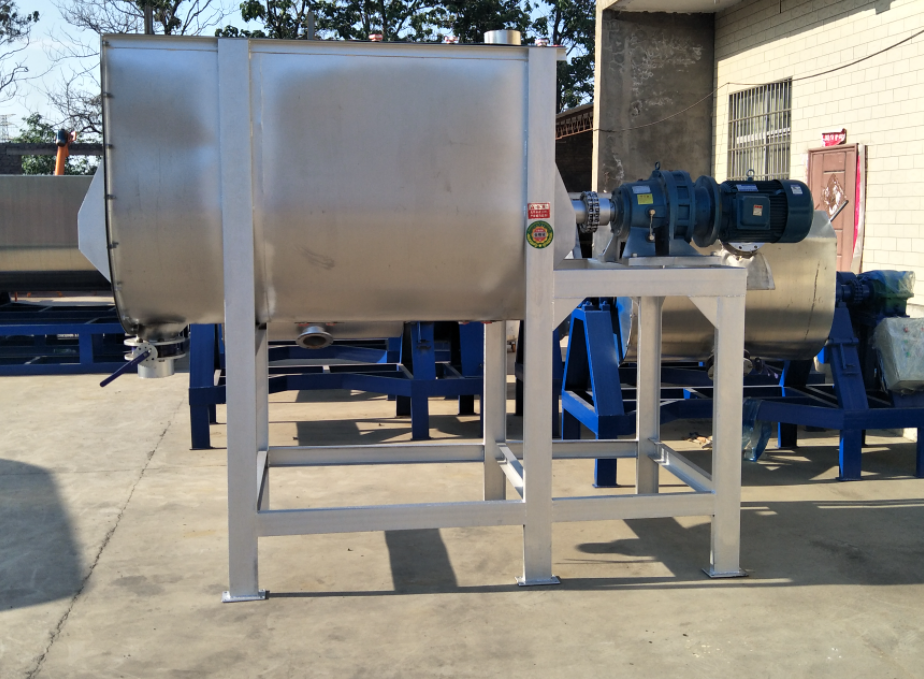
Carbon Steel vs. Stainless Steel: The food and pharmaceutical industries require 304/316L stainless steel, which increases costs by 30%-50%. Surface Treatment: Polishing improves anti-stick properties but increases processing costs by 20%.
Sealing Design: A fully sealed structure (e.g., mechanical seal + airtight seal) prevents dust leakage, but costs 40% more than an open design.
Motor Power: Ranges from 3kW to 15kW, with each kW increase in power increasing the cost by approximately $150.
Reducer: Hardened gear reducers offer a lifespan three times that of standard reducers, but are 200%-300% more expensive.
VFD: Supports multi-speed adjustment for optimized mixing processes, but adds $500-1000 to the cost.
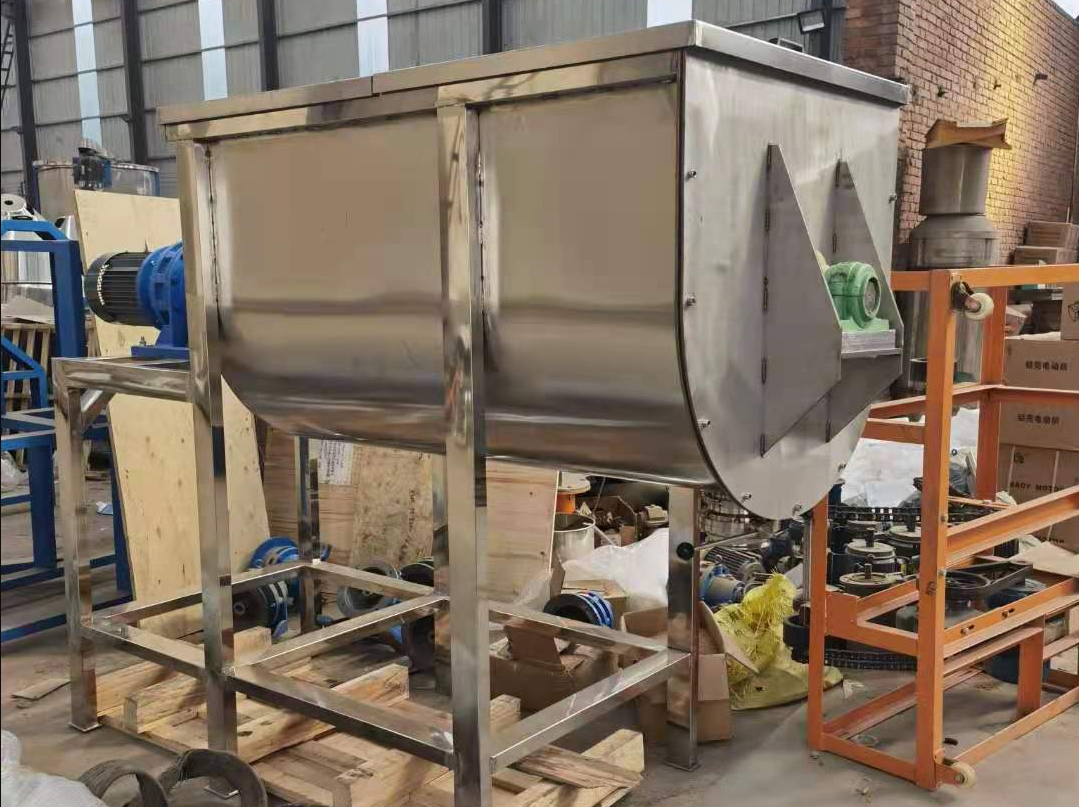
Heating/Cooling Jacket: Suitable for temperature-sensitive materials, adds $800-1500 to the cost.
Flying Knife Device: Disperses fiber clumps and improves mixing efficiency, adds $600-1200 to the cost.
Automation Interface: Supports integration with DCS/PLC systems for remote monitoring, adds $1000-2000 to the cost.
Number of Ribbon Layers and Structural Design: Ribbons, as the core mixing component, have significant price differences depending on the number of layers. Commonly available ribbons include single-, double-, and triple-layer ribbons. Single-layer ribbons have a simple structure and are often used in small equipment with low mixing requirements, resulting in lower costs. Double-layer ribbons are the mainstream configuration. The outer ribbons funnel the material from the sides toward the center, while the inner ribbons transport the material from the center to the sides, creating convection mixing that significantly improves mixing efficiency and uniformity. Consequently, the price is 20%-50% higher than single-layer ribbons.
Ribbon Material Selection: The material affects the durability and applicability of the ribbon, which in turn affects the price. Ordinary carbon steel ribbons are low-cost and suitable for mixing non-corrosive, low-abrasive dry powders, such as mixing common feed ingredients. However, in environments with corrosive or highly abrasive materials, carbon steel is susceptible to rust and wear, so stainless steel is recommended.
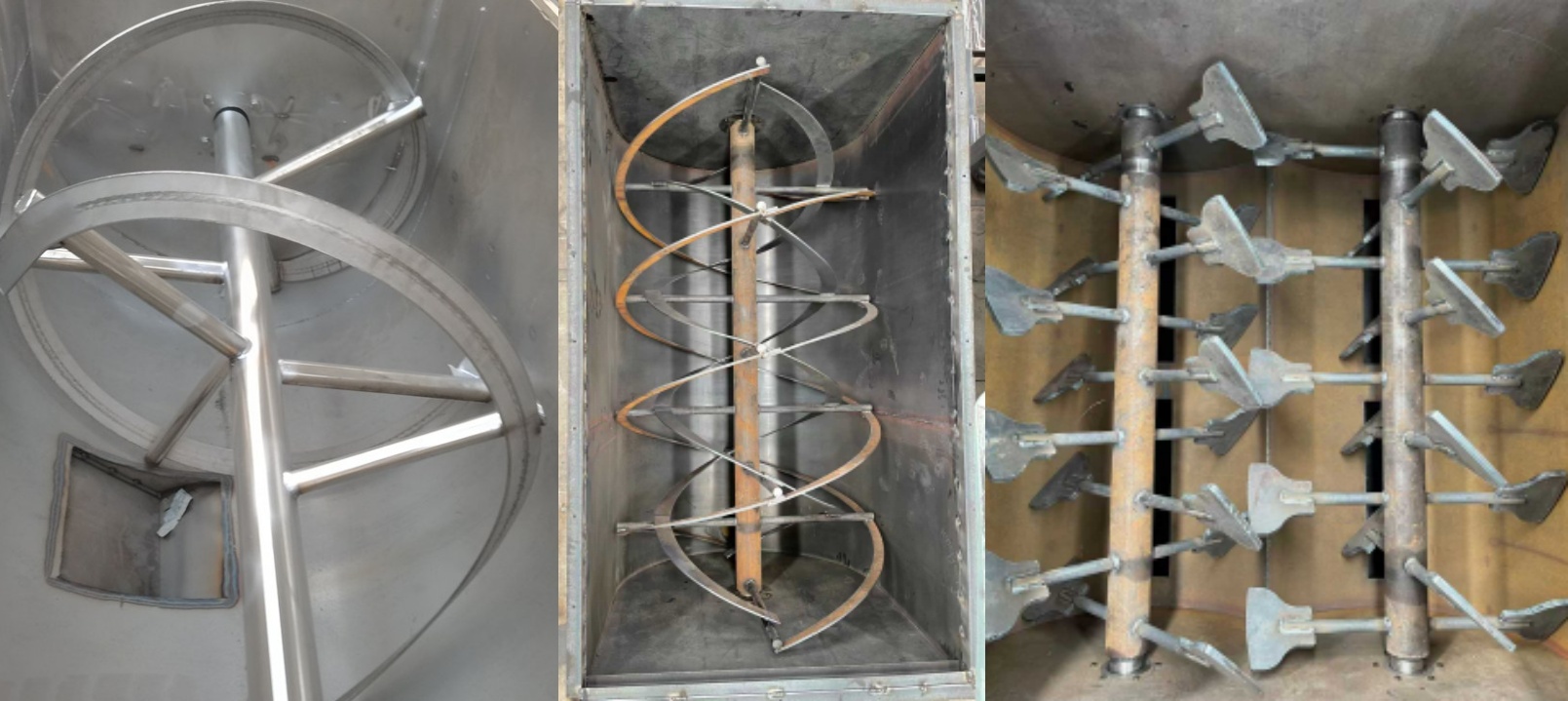
Specialized Ribbon Functional Design: To meet specific mixing requirements, ribbons may be equipped with specialized functions, which are also reflected in the price. For example, for materials prone to agglomeration, impellers are added to the spiral ribbon to break up lumps during mixing. To achieve precise temperature control, some equipment features a hollow spiral ribbon structure that can pass heat transfer oil or coolant, combined with a jacket to control material temperature. This results in a price premium of 20%-50% over standard models.
Based on market conditions, horizontal dry powder mixer prices can be categorized into three main price ranges. Small units range from $1,500 to $8,000 and are suitable for laboratory trials and small food or feed plants. These units are typically constructed of carbon steel and equipped with basic mixing features, meeting small-batch, low-frequency mixing needs. Medium-sized units, priced from $8,000 to $20,000, are typically constructed of 304 stainless steel and equipped with a double-ribbon mixer and intelligent control system. They are suitable for small and medium-sized chemical and building materials companies, supporting production capacities of 50-200 tons per day, balancing efficiency and cost. Large machines cost $20,000-$80,000 and feature a thickened stainless steel cylinder and heavy-duty drive system. Customizable heating/cooling jackets and explosion-proof components are available. Suitable for continuous production in large-scale building materials plants and compound fertilizer companies, they can achieve daily production capacities of 200-1,000 tons.
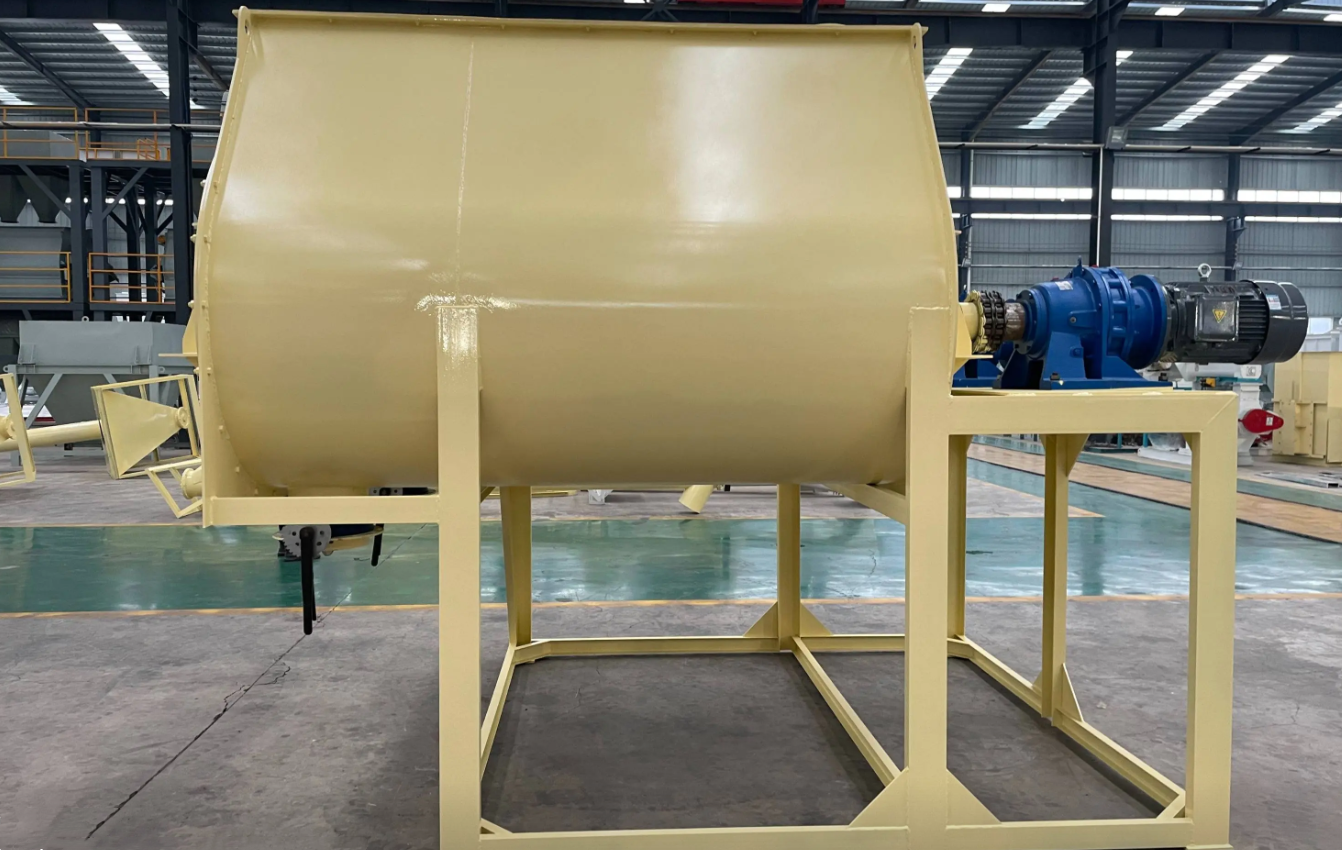
The price of a horizontal dry powder mixer is directly related to its quality. Generally, higher-priced mixers are more reliable in terms of quality, as reflected in the following aspects.
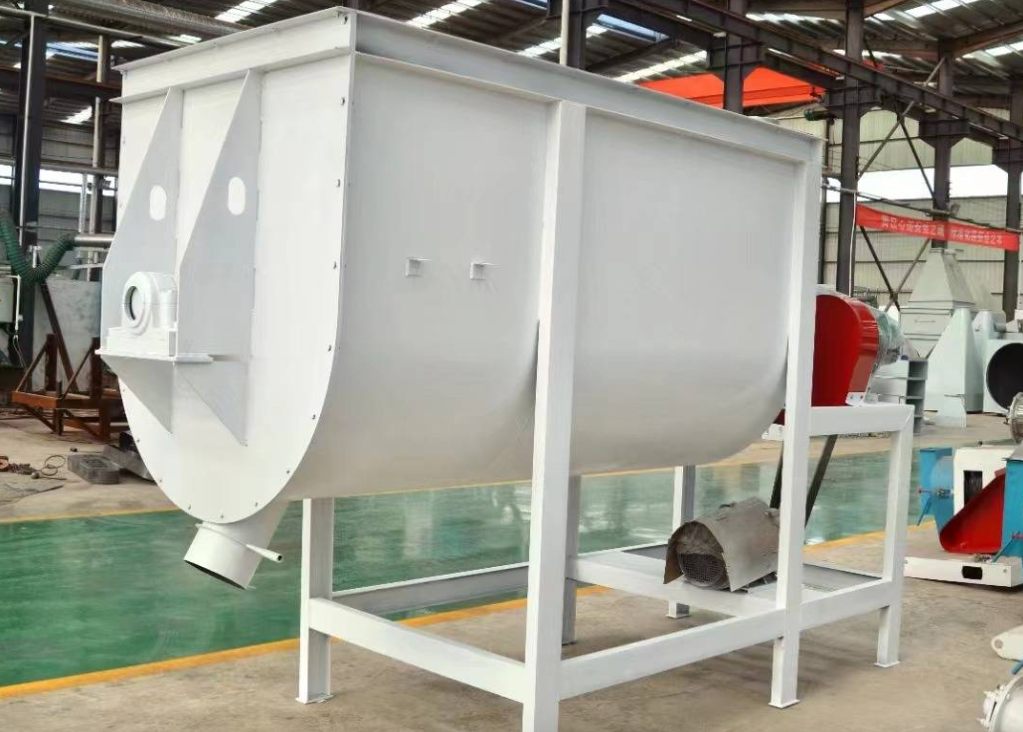
Material Selection: High-quality horizontal dry powder mixers typically utilize high-quality materials, such as 304 or 316L stainless steel. These materials offer superior corrosion resistance, wear resistance, and strength, ensuring the equipment is less susceptible to rust and wear over long periods of use, maintaining optimal performance.
Manufacturing Process: Superior manufacturing processes are crucial to ensuring mixer quality. Expensive mixers may utilize more advanced processing equipment and stricter quality control systems during production, ensuring high precision machining of each component.
Technical Parameters and Performance: High-quality horizontal dry powder mixers generally offer superior performance in technical parameters such as mixing uniformity and mixing efficiency.
Configuration and Features: Higher-priced mixers may be equipped with higher-quality key components such as motors and reducers, as well as advanced features such as variable frequency drive and intelligent control. These features enhance the equipment's usability and adaptability.
When purchasing a horizontal dry powder mixer, it's important to first understand the material's characteristics, such as particle size, moisture content, and corrosiveness, to determine the appropriate material and mixing method. Select the appropriate specifications based on the required hourly production capacity and the equipment's rated output.
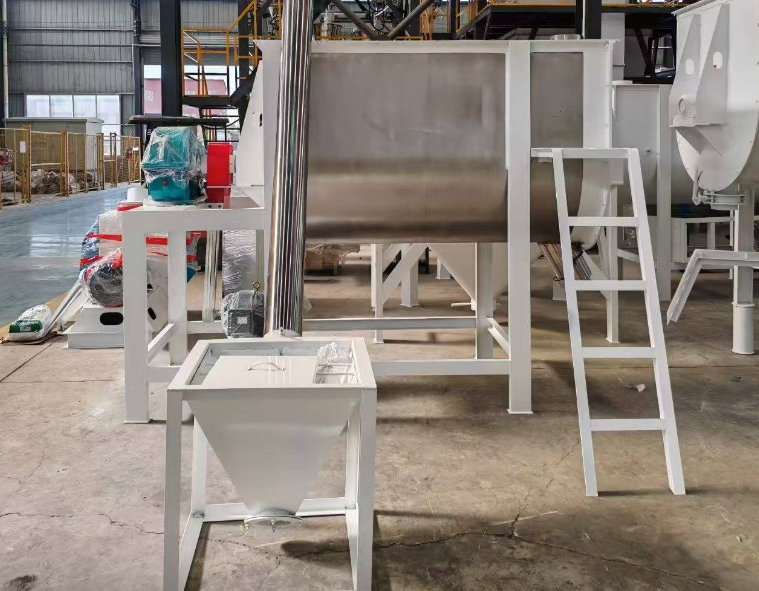
Clarify Requirements: Select the equipment type based on the material's characteristics (density, viscosity, particle size) and production scale (batch size, production capacity).
Verify Performance: Require the supplier to provide a mixing uniformity test report and an on-site trial run video.
Focus on After-Sales Service: Prioritize suppliers that offer warranties, 24-hour response times, and spare parts inventory to reduce long-term operating costs.
To obtain a detailed quote for a horizontal dry powder mixer, simply provide us with four key pieces of information for a free, customized quote. First, clarify the material characteristics, including the dry powder's particle size and moisture content, which determine the equipment's material and wear-resistant design. Second, specify the required hourly production capacity to match the machine with the appropriate volume and power. Third, provide on-site operating conditions, such as workshop temperature and humidity, and whether explosion-proof requirements are required, to ensure the equipment is suitable for your production environment. Finally, list any special functional requirements, such as vacuum degassing and jacket temperature control. We will then develop a competitive production quote based on your specific parameters.
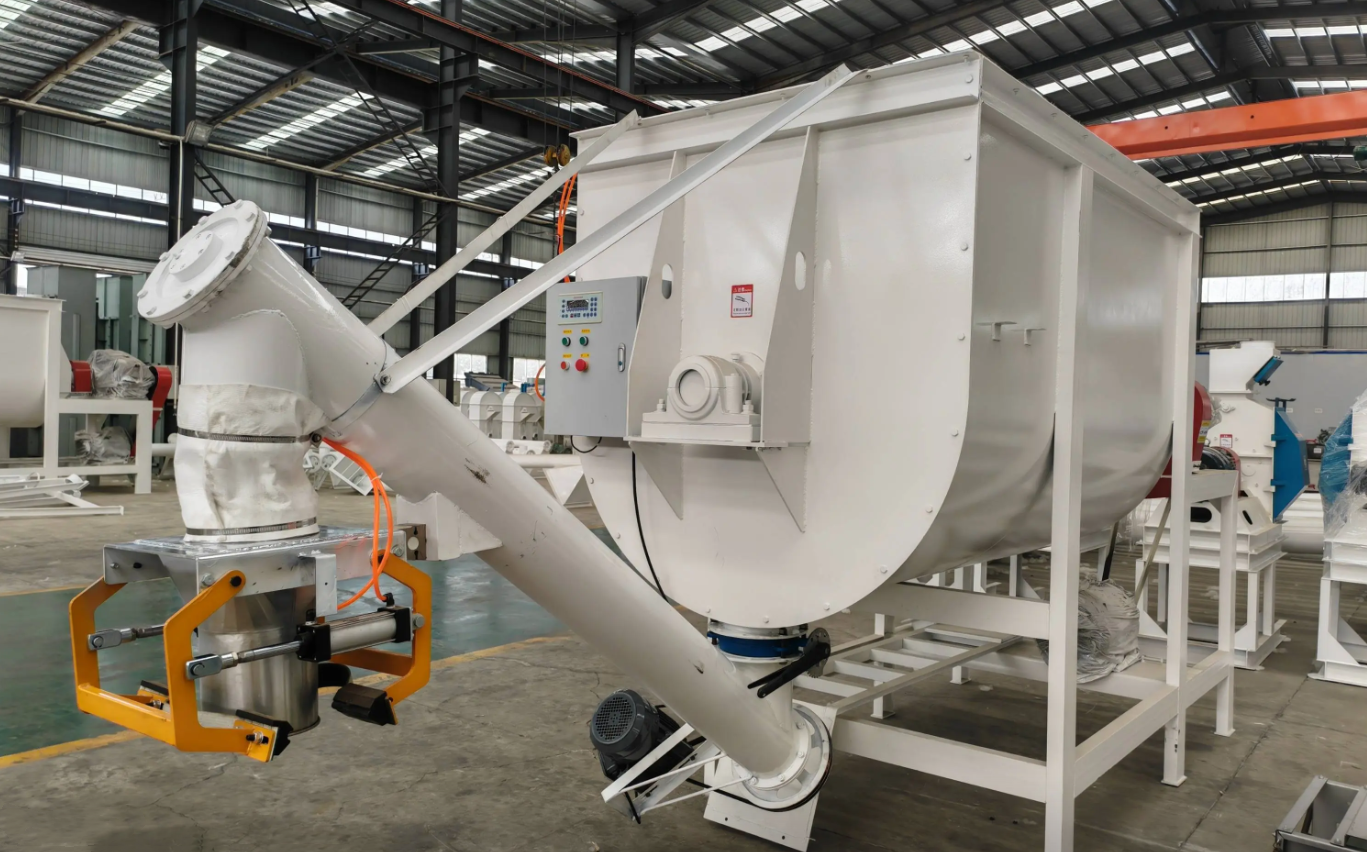
The price difference for a horizontal dry powder mixer essentially stems from the matching of technical value with industry needs. From basic equipment priced at $2,000 to high-end systems priced at $10,000, each price range corresponds to a specific production scenario and technical solution.
Address:China,Yanjin county forest park gate to the west 1000 meters north road.